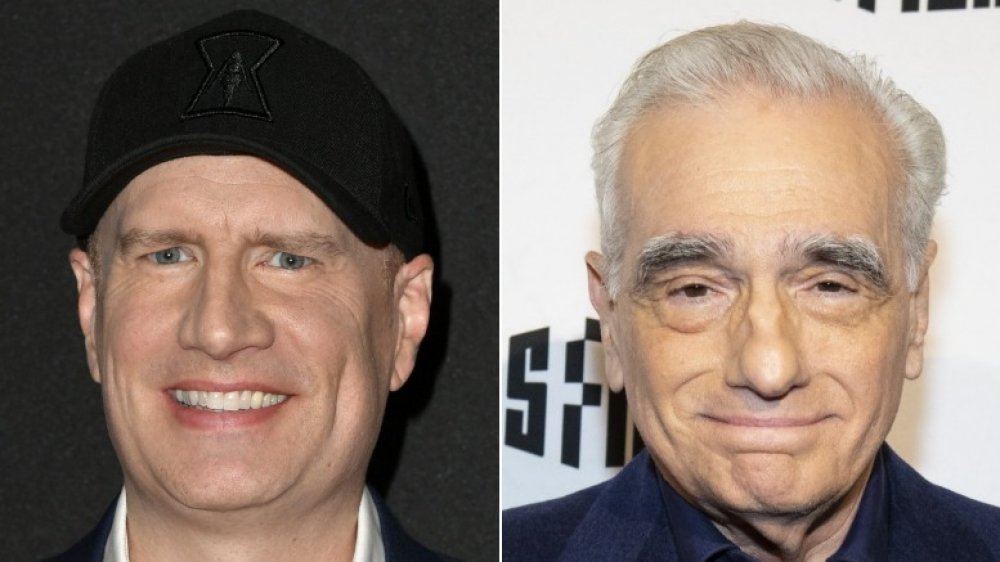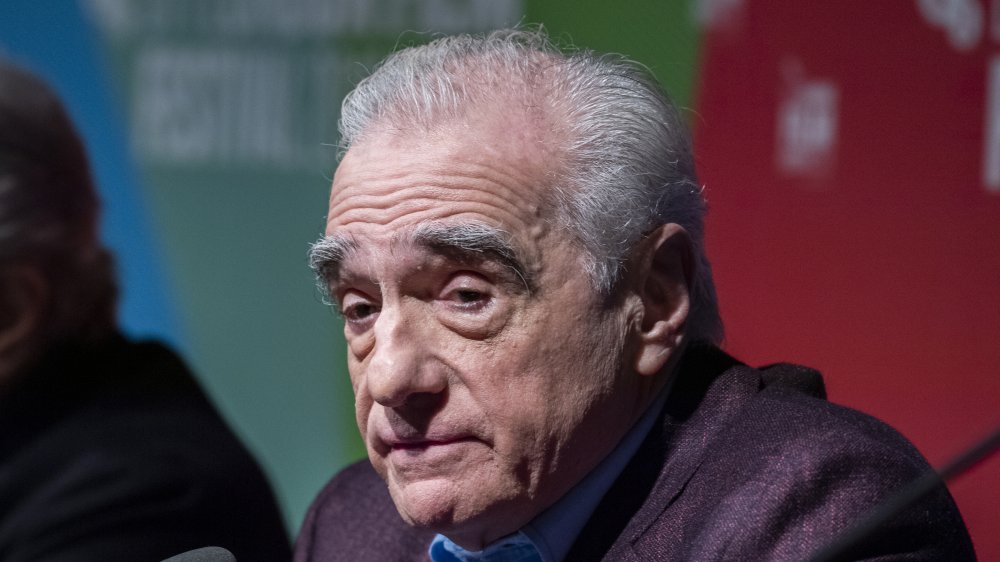Kevin Feige Finally Opens Up About Martin Scorsese's Marvel Comments
Marty and Marvel are still fighting.
Legendary director Martin Scorsese, whose new film The Irishman is winning critical raves, infamously had a few choice words about the artistic merit of Marvel's cinematic universe back in November. In the weeks since, some of Scorsese's "New Hollywood" peers have come to his defense, while several of Marvel's luminaries have had their own choice words for the filmmaker. Now, in the midst of all of the sniping, Marvel head honcho Kevin Feige has weighed in.
A bit of background: the whole brouhaha started when Scorsese was asked during a sitdown with Empire magazine whether he'd been able to catch up with the latest chapters of the wildly popular Marvel Cinematic Universe. "I tried, you know?" the director replied. "But that's not cinema." He then went on to compare Marvel flicks to theme park rides, seeming to insinuate that the actors who deigned to appear in such lowly productions were nothing but glorified Disneyland employees.
Since then, many parties — both involved and, you know, not — have stepped forward with their opinions of Scorsese's remarks, but until now, we had yet to hear from the King Geek himself. Feige, who was recently named Chief Creative Officer of Marvel Entertainment, finally broke his silence during a recent interview with The Hollywood Reporter.
When asked whether he agrees with Scorsese that superhero films are ultimately bad for cinema, Feige answered predictably. "I think that's not true. I think [Scorsese's remarks are] unfortunate," he said. "I think myself and everyone who works on these movies loves cinema, loves movies, loves going to the movies, loves to watch a communal experience in a movie theater full of people."
Feige also made the excellent point that Marvel is known for taking considerable risks in its films. "We did Civil War. We had our two most popular characters get into a very serious theological and physical altercation," he explained. "We killed half of our characters at the end of [Avengers: Infinity War]. I think it's fun for us to take our success and use it to take risks, and go [to] different places."
Finally, Feige reminded THR that ultimately, art is in the eye of the beholder, saying, "Everybody has a different definition of cinema. Everybody has a different definition of art. Everybody has a different definition of risk. Some people don't think [superhero films aren't] cinema. Everybody is entitled to their opinion. Everyone is entitled to repeat that opinion. Everyone is entitled to write op-eds about that opinion, and I look forward to what will happen next. But in the meantime, we're going to keep making movies."
The battle between Marty & Marvel rages on
Feige somewhat snarkily refers to the fact that in the wake of the continued uproar around his comments, Scorsese saw fit to double and even triple down with further public "clarifications," most recently penning an op-ed in the New York Times in which the director explained that his problem wasn't with Marvel movies in and of themselves, but with what he perceives as a squeezing out of more artistic fare in favor of endless big-budget blockbusters.
"You might ask, what's my problem? Why not just let superhero films and other franchise films be? The reason is simple," he wrote. "In many places around this country and around the world, franchise films are now your primary choice if you want to see something on the big screen. It's a perilous time in film exhibition, and there are fewer independent theaters than ever... And if you're going to tell me that it's simply a matter of supply and demand and giving the people what they want, I'm going to disagree. It's a chicken-and-egg issue. If people are given only one kind of thing and endlessly sold only one kind of thing, of course they're going to want more of that one kind of thing."
Scorsese should at least be given some points for attempting to explain his position, rather than simply trashing superhero films like his friend and peer Francis Ford Coppola, who went so far as to call Marvel movies "despicable." That comment in particular drew the ire of Disney CEO Bob Iger, who pointed out that this is a word usually reserved "for someone who has committed mass murder," before passionately defending the thousands of creatives who work on the films, topping off his remarks with, "If [Scorsese and Coppola] want to b***h about movies, it's certainly their right."
Marvel alumni from Nick Fury actor Samuel L. Jackson to Guardians of the Galaxy director James Gunn have also publicly come to the defense of the genre, with Gunn taking to Instagram to make perhaps the most salient point of all.
"Many of our grandfathers thought all gangster movies were the same, often calling them 'despicable,'" Gunn wrote. "Some of our great grandfathers thought the same of westerns, and believed the films of John Ford, Sam Peckinpah, and Sergio Leone were all exactly the same... Superheroes are simply today's gangsters/cowboys/outer space adventurers. Some superhero films are awful, some are beautiful. Like westerns and gangster movies... not everyone will be able to appreciate them, even some geniuses. And that's okay."
It looks like this spat won't die down any time soon, especially considering that those involved seem determined to keep stoking the flames, so keep an eye out for yet another chapter in this inexplicably lengthy argument. Meanwhile, if you'll excuse us, we're going to go and watch Avengers: Endgame again.

